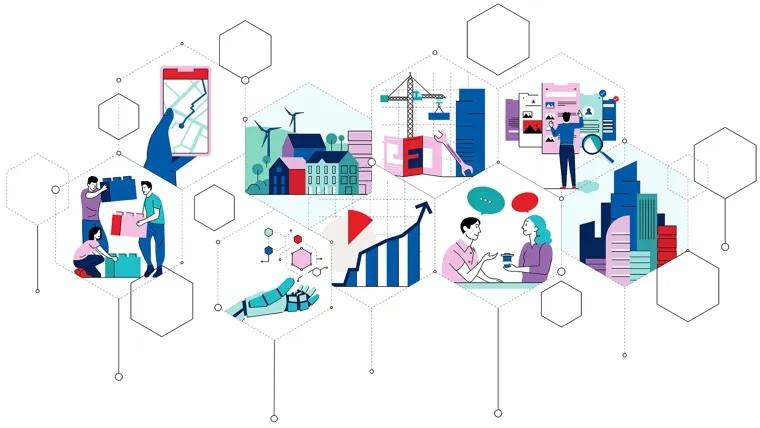AI now integral to city and infrastructure design, global survey finds
More than a third of engineers, architects, and city planners worldwide are now using artificial intelligence (AI) every day to design cities and infrastructure, according to a new global survey commissioned by sustainable development consultancy Arup.
The research highlights the rapid adoption of AI across the built environment sector, with 36% of professionals relying on AI daily and over 80% using it at least weekly. The findings show that AI’s role in shaping the urban landscape extends well beyond popular tools like chatbots or large language models. Engineers and architects are increasingly using advanced AI solutions such as large-scale simulations, evolutionary algorithms, and science-based AI to support project design, digital twins, urban planning, and efforts to boost sustainability and energy efficiency.
The survey, conducted across 10 countries—including Australia, Brazil, China, Germany, India, Indonesia, Nigeria, Singapore, the UK, and the US—reveals overwhelmingly positive attitudes toward AI adoption. Nearly two-thirds of respondents (61%) view AI as an opportunity, while only 11% see it as a threat to jobs. Many believe AI can help deliver projects on time and within budget, while also supporting responses to the climate and biodiversity crises by reducing waste, developing sustainable materials, and optimizing renewable energy use.
At the same time, 91% of respondents agree that clear ethical guidelines for AI in the built environment are essential. However, around half expressed concern about the dominance of global tech companies in the development of AI tools.
Arup commissioned the research to better understand how AI is already transforming city and infrastructure design and to encourage greater focus on leveraging AI to decarbonize the sector and restore nature. The consultancy argues that channeling even a fraction of the $252 billion invested globally in AI last year into AI tools tailored to sustainability challenges could help reshape cities and infrastructure to deliver more resilient, prosperous, and livable environments.
“AI is already making a significant impact—empowering what we call ‘Total Design’ and helping deliver everything from renewable energy infrastructure to transport systems,” said Will Cavendish, Arup’s Global Digital Services Leader and former strategist at DeepMind. “This survey shows the scale and pace of AI adoption in designing cities and infrastructure, cutting through the noise around large language models to highlight the potential of advanced AI systems to improve people’s lives.”
Arup is already deploying AI-powered tools to develop nature-based solutions aimed at protecting communities from extreme heat and floods, and to extend the lifespan of critical infrastructure such as offshore wind turbines and bridges—reducing both costs and carbon emissions in the process.
Cavendish emphasized the need for greater investment in AI systems that deliver tangible environmental and social benefits. “While global investment in AI is enormous, it often misses the most impactful areas. Our industry needs to focus more resources on developing AI that addresses real-world challenges, from sustainable materials to global biodiversity,” he said.









